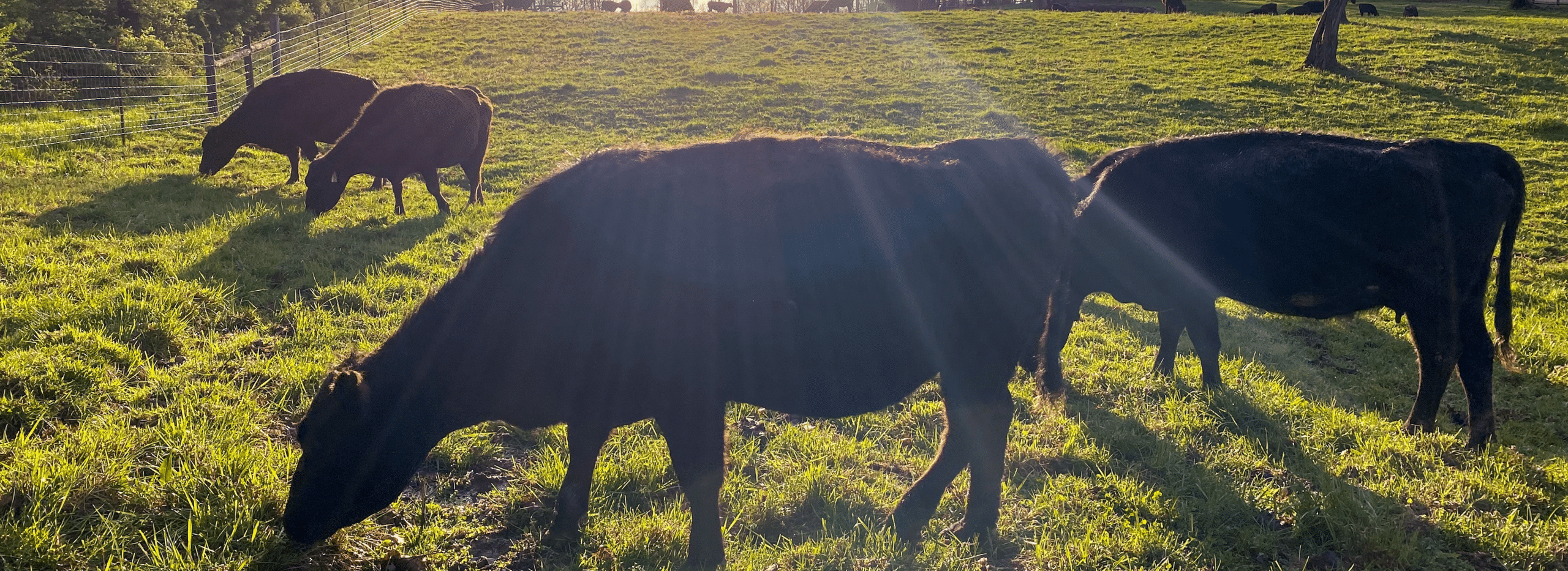A Responsible Protein Source

A Responsible Protein Source
How does Greenacres beef compare to plant-based “meat alternatives”? The ingredients used to produce these products (soy, peas, seed oils, rice, etc) are grown in huge, industrial agricultural operations that tend to specialize in and grow only one crop, a practice known as ‘monocropping’. Monocrop agriculture harms the environment in many ways; through the compaction and degradation of soils, the usage of huge quantities of pesticides and herbicides, the pollution of water, and the loss of biodiversity.
Along with physical compaction from heavy machinery, monocropped soils are often devoid of the lifeforms you’d find in healthy soils, like bacteria, invertebrates, insects, and fungi. This soil biology is largely responsible for the development of soil organic matter – which like a sponge is able to hold 18 times its own weight in water – and building soil aggregates, which provide pore spaces in the soil to allow water to easily infiltrate down into the soil profile. Thus, depleted biology leads directly to a loss of water absorption and retention, causing runoff and erosion to become serious issues.
Besides the environmental costs of monocrop farming, “meat alternatives” are also reliant on huge processing plants and long supply chains to turn a raw soybean into processed ingredients, like soy protein concentrate, soy protein isolate, and soy leghemoglobin. Highly processed foods take your food further from your farmer, further from the land on which the foods are grown, and are reliant on wealthy multinational corporations to keep the complex supply chains and processing plants operating.
Raising cattle on pasture actually improves the environment, improving both the quality and quantity of soil biology, sequestering carbon and building biodiversity. If you’re looking for responsible protein choice, look no further than 100% grassfed, grass-finished beef.
